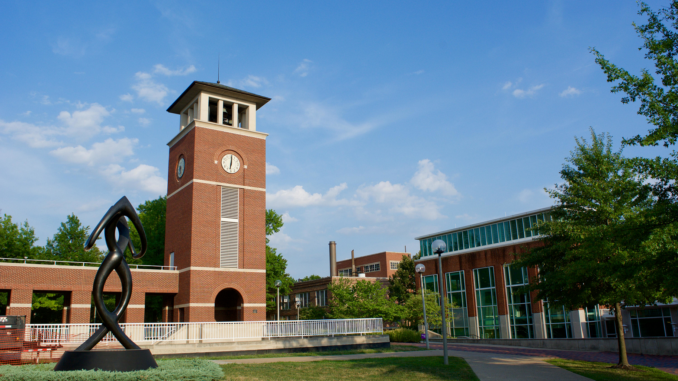
Truman State University has undergone a curricular reform initiative and reformatted freshman week activities in an effort to update the curriculum, simplify the transferring process for currents students and ensure new students are welcomed. This fall, 200 students from Ryle Hall will be part of a pilot test for the series.
The alterations made to the Liberal Studies Program and Truman Days will officially go into effect in fall 2019, and the title will be formally changed to The Dialogues.
Statistics professor Scott Alberts said The Dialogues is composed of two parts called Disciplinary Perspectives and Interconnecting Perspectives. The Disciplinary Perspectives replace the Essential Skills and Modes of Inquiry element of the current LSP and consist of five core perspectives: humanities, social sciences and history, science and math, communication, and mission specific.
The Interconnecting Perspectives will remain the same as they are in the current LSP but with a slight modification to the health and wellness course approach. Alberts said faculty and staff are hoping to allow students to log their fitness hours instead of having to sign up for a traditional physical education course.
These curriculum changes are designed to align more with the Missouri State Board of Education’s standards, specifically the Core Curriculum Transfer or CORE 42 curriculum. CORE 42 is intended to make transferring between schools easier for students by creating a 42-credit common course load to be adopted between universities and colleges across Missouri. Economics professor Justin Jarvis said Truman wants transferring, whether in or out, to be as smooth as possible for its students, so it is embracing the CORE 42 approach.
Along with the changes to the current LSP, Truman is revamping its freshman experience to better welcome and include incoming Truman students. In the past, the University greeted new students with the mandatory one-credit-hour Truman Week course at the beginning of the semester, but in the future the freshman experience will be four credits and last the entire fall semester.
Three of the four credits of the new freshman experience will come from the Self and Society Seminar, a course designed to equip students with the skills necessary for a successful college career, such as time management, basic communication and class preparation.
The last credit will be earned over the course of the fall semester through a weekly lecture series called the Truman Symposium. Professors from across campus will lead the hour-long lectures at 7 p.m every Tuesday night. The lectures raise big picture questions, requiring the students to think critically and come in contact with a wide range of students and professors, said Alberts.
“One of the ways I think [the Truman Symposium] might be useful is in increasing the sense of community and camaraderie among students,” said Chad Mohler, professor of philosophy and religion. “They are all going to be discussing the same sorts of questions, so I think it will help develop a spirit of unity among students coming in.”
Mohler will begin the lecture series Aug. 21 by raising the question, “what is beauty?” This particular lecture will feature five professors from different departments on campus and is designed to introduce new students to what a Truman liberal arts education is really about.
In addition to the new curriculum, there will be changes to Truman’s course philosophy. Jarvis said Truman is eliminating the Liberal Arts and Science designation for courses. In the past, by designating certain classes as LAS courses, Truman faculty and staff felt students were limited to only taking specific liberal arts courses. Now, any course can be counted as an LAS course.
“You give the students the opportunity to take classes that were not previously considered [to be] liberal arts, like business classes or education classes,” said Jarvis. “It sends the message to everybody, kind of to remind us all that a liberal arts education isn’t just taking classes in a certain major. It’s us as faculty designing classes that open the minds of our students and then students taking those classes and engaging with the content.”
